Vauxhall Mokka vs Peugeot 2008 - Differences and prices compared
Compare performance (281 HP vs 156 HP), boot space and price (23000 £ vs 24500 £ ) at a glance. Find out which car is the better choice for you – Vauxhall Mokka or Peugeot 2008?
Costs and Efficiency:
Looking at overall running costs, both models reveal some interesting differences in everyday economy.
Vauxhall Mokka has a barely noticeable advantage in terms of price – it starts at 23000 £ , while the Peugeot 2008 costs 24500 £ . That’s a price difference of around 1414 £.
Both cars consume an average of 4.90 L per 100 km – no difference here.
In terms of energy consumption, the advantage goes to the Vauxhall Mokka: with 15.40 kWh per 100 km, it’s barely noticeable more efficient than the Peugeot 2008 with 15.50 kWh. That’s a difference of about 0.10 kWh.
As for electric range, the Peugeot 2008 performs barely noticeable better – achieving up to 406 km, about 3 km more than the Vauxhall Mokka.
Engine and Performance:
Power, torque and acceleration are the classic benchmarks for car enthusiasts – and here, some clear differences start to show.
When it comes to engine power, the Vauxhall Mokka has a decisively edge – offering 281 HP compared to 156 HP. That’s roughly 125 HP more horsepower.
In acceleration from 0 to 100 km/h, the Vauxhall Mokka is clearly quicker – completing the sprint in 5.90 s, while the Peugeot 2008 takes 8.30 s. That’s about 2.40 s faster.
In terms of top speed, the Vauxhall Mokka performs slight better – reaching 209 km/h, while the Peugeot 2008 tops out at 206 km/h. The difference is around 3 km/h.
There’s also a difference in torque: Vauxhall Mokka pulls distinct stronger with 345 Nm compared to 270 Nm. That’s about 75 Nm difference.
Space and Everyday Use:
Whether family car or daily driver – which one offers more room, flexibility and comfort?
Both vehicles offer seating for 5 people.
In curb weight, Peugeot 2008 is minimal lighter – 1263 kg compared to 1294 kg. The difference is around 31 kg.
In terms of boot space, the Peugeot 2008 offers somewhat more room – 434 L compared to 350 L. That’s a difference of about 84 L.
In maximum load capacity, the Peugeot 2008 performs noticeable better – up to 1467 L, which is about 362 L more than the Vauxhall Mokka.
When it comes to payload, Peugeot 2008 a bit takes the win – 447 kg compared to 400 kg. That’s a difference of about 47 kg.
Who comes out on top?
Overall, the Vauxhall Mokka shows itself to be leaves the rival little chance and secures the title of DriveDuel Champion.
It convinces with the more balanced overall package and proves to be the more versatile choice for everyday use.
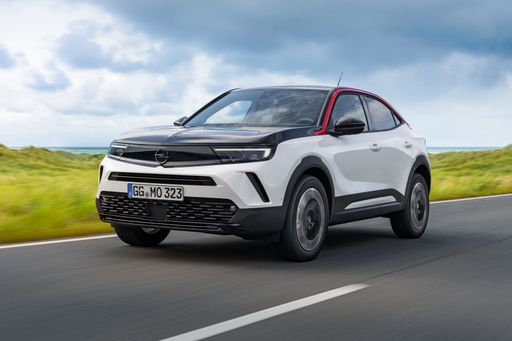
Vauxhall Mokka
Costs and Consumption
View detailed analysis
Engine and Performance
View detailed analysis
Dimensions and Body
View detailed analysis
Vauxhall Mokka
The Opel Mokka cuts a smart, modern silhouette that feels right at home in the city while still turning heads on the open road. It's a practical, easy-to-live-with crossover that blends comfy driving manners with enough flair and tech to keep daily commutes interesting — and it won’t make you regret trading up.
details
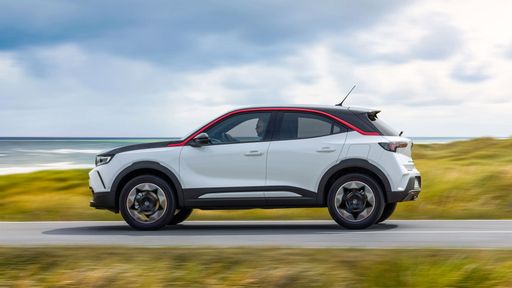
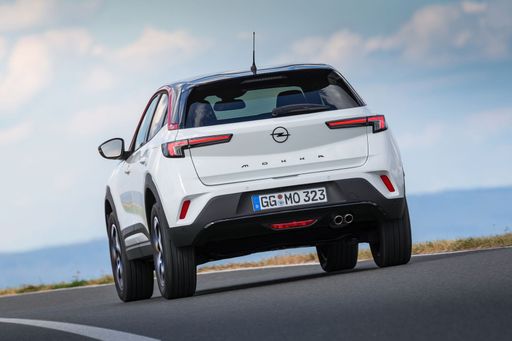
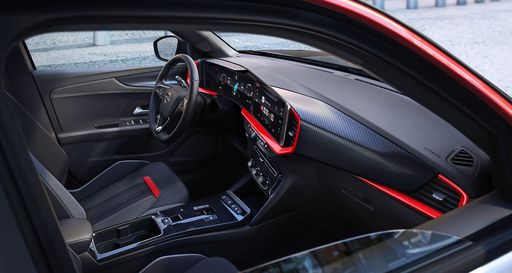
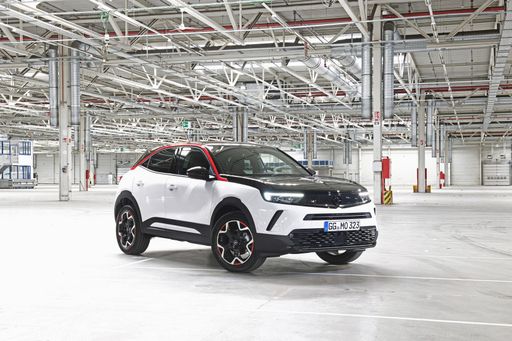
Peugeot 2008
The Peugeot 2008 is a stylish, city-friendly crossover that packs big character into a compact package, turning mundane errands into a mildly entertaining drive. Its clever interior layout, polished looks and confident ride make it a smart choice for buyers who want practical daily sense with a touch of flair.
details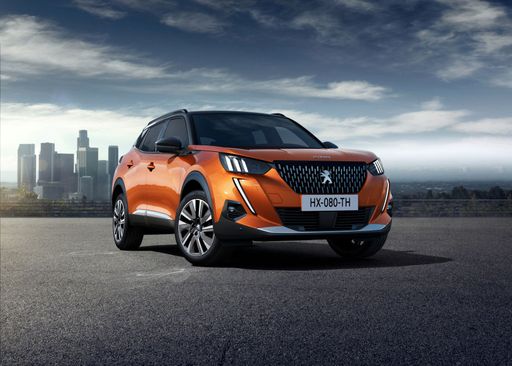
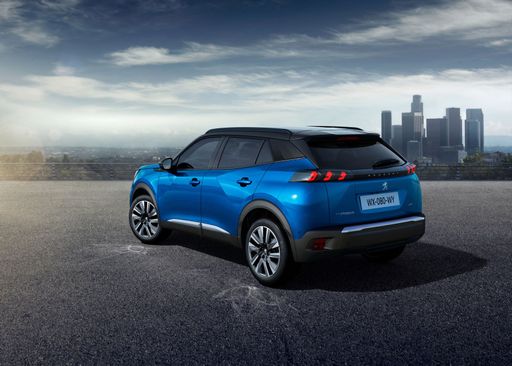
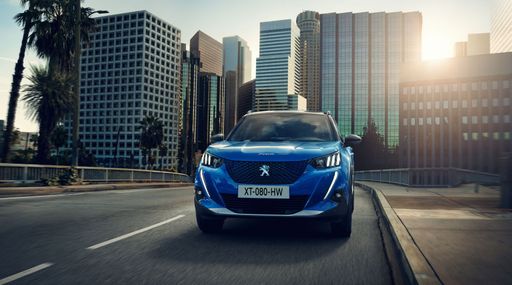
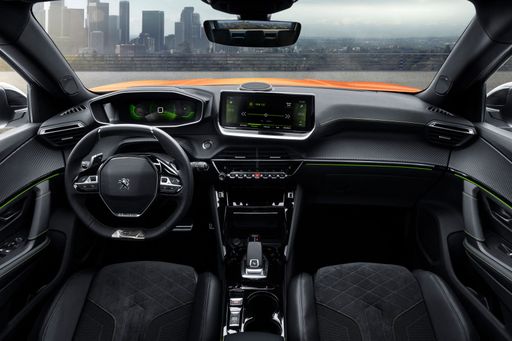
Costs and Consumption |
|
|---|---|
|
Price
23000 - 40500 £
|
Price
24500 - 40300 £
|
|
Consumption L/100km
4.9 - 5.7 L
|
Consumption L/100km
4.9 - 5.7 L
|
|
Consumption kWh/100km
15.4 - 18.5 kWh
|
Consumption kWh/100km
15.50 kWh
|
|
Electric Range
336 - 403 km
|
Electric Range
406 km
|
|
Battery Capacity
51 kWh
|
Battery Capacity
51 kWh
|
|
co2
0 - 129 g/km
|
co2
0 - 129 g/km
|
|
Fuel tank capacity
44 L
|
Fuel tank capacity
44 L
|
Dimensions and Body |
|
|---|---|
|
Body Type
SUV
|
Body Type
SUV
|
|
Seats
5
|
Seats
5
|
|
Doors
5
|
Doors
5
|
|
Curb weight
1294 - 1672 kg
|
Curb weight
1263 - 1623 kg
|
|
Trunk capacity
310 - 350 L
|
Trunk capacity
434 L
|
|
Length
4150 mm
|
Length
4304 mm
|
|
Width
1787 mm
|
Width
1770 mm
|
|
Height
1506 - 1535 mm
|
Height
1523 mm
|
|
Max trunk capacity
1060 - 1105 L
|
Max trunk capacity
1467 L
|
|
Payload
388 - 400 kg
|
Payload
407 - 447 kg
|
Engine and Performance |
|
|---|---|
|
Engine Type
Electric, Petrol MHEV, Petrol
|
Engine Type
Electric, Petrol MHEV, Petrol
|
|
Transmission
Automatic, Manuel
|
Transmission
Automatic, Manuel
|
|
Transmission Detail
Reduction Gearbox, Dual-Clutch Automatic, Manual Gearbox
|
Transmission Detail
Reduction Gearbox, Dual-Clutch Automatic, Manual Gearbox
|
|
Drive Type
Front-Wheel Drive
|
Drive Type
Front-Wheel Drive
|
|
Power HP
136 - 281 HP
|
Power HP
101 - 156 HP
|
|
Acceleration 0-100km/h
5.9 - 9 s
|
Acceleration 0-100km/h
8.3 - 10.9 s
|
|
Max Speed
150 - 209 km/h
|
Max Speed
150 - 206 km/h
|
|
Torque
230 - 345 Nm
|
Torque
205 - 270 Nm
|
|
Number of Cylinders
3
|
Number of Cylinders
3
|
|
Power kW
100 - 207 kW
|
Power kW
74 - 115 kW
|
|
Engine capacity
1199 cm3
|
Engine capacity
1199 cm3
|
General |
|
|---|---|
|
Model Year
2024 - 2025
|
Model Year
2023 - 2025
|
|
CO2 Efficiency Class
A, C, D
|
CO2 Efficiency Class
A, C, D
|
|
Brand
Vauxhall
|
Brand
Peugeot
|
What drive types are available for the Vauxhall Mokka?
The Vauxhall Mokka is offered with Front-Wheel Drive.




